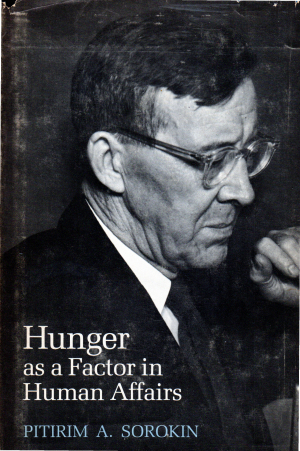Any organized social group is always a stratified social body. There has not been and does not exist any permanent social group which is “flat,” and in which all members are equal. Unstratified society, with a real equality of its members, is a myth which has never been realized in the history of mankind. …
Except, perhaps, the few cases where the members of a population are leading an isolated life, where no permanent social life and interaction exist, where, therefore, we do not have a social organization in the proper sense of the word, as soon as organization begins primitive social groups exhibit the trait of stratification. … Traditional opinion about primitive groups as communistic societies which do not have any commerce or private property, or economic inequality, or inheritance of fortune, are far from being correct. …
If we cannot find a non-stratified society among the most primitive groups, it is useless to try to find it among more advanced, larger and compound societies. Here, without any single exception, the fact of stratification is universal. … Among all agricultural and, especially, industrial societies social stratification has been conspicuous and clear. The modern democracies also do not present any exception to the rule. Though in their constitutions it is said that “all men are equal,” only a quite naive person may infer from this a non-existence of social stratification within these societies. It is enough to mention the gradations: from Henry Ford to a beggar; from the President of the United States to a policeman; from a foreman to the most subordinate worker; from the president of a university to a janitor; from an “LL.D.” or “Ph.D.” to a “B.A.”; from a “leading authority” to an average man; from a commander-in-chief of an army to a soldier; from a president of a board of directors of a corporation to its common laborer; from an editor-in-chief of a newspaper to a simple reporter; it is enough to mention these various ranks and social gradations to see that the best democracies have social stratification scarcely less than the non-democratic societies. …
Family, church, sect, political party, faction, business organization, gang of brigands, labor union, scientific society—in brief, any organized social group is stratified at the price of its permanency and organization. The organization even of groups of ardent levelers, and the permanent failure of all attempts to build a non-stratified group, testify to the imminency and unavoidability of stratification in an organized social group. This remark may appear somewhat strange to many people who, under the influence of high-sounding phraseology, may believe that, at least, the societies of the levelers themselves are non-stratified. This belief, as many another one, is utterly wrong. Different attempts to exterminate social feudalism have been successful, in the best cases, only in ameliorating some of the inequalities, and in changing the concrete forms of stratification. They have never succeeded in annihilating stratification itself. … all attempts of the most ardent levelers in the history of all countries have had the same fate. They could not avoid it even when the faction of the levelers has been victorious. The failure of the Russian Communism is only an additional example in a long series of similar experiments performed on small and large scale, sometimes peacefully, as in many religious sects, sometimes violently, as in social revolutions of the past and present. If many forms of stratification were destroyed for a moment, they regularly reappeared again in the old or in a modified form, often being built by the hands of the levelers themselves.
Present democracies and Socialist, Communist, Syndicalist, and other organizations, with their slogan of “equality” do not present any exception to the rule. In regard to democracies this has been shown above. … The enormous potential taste for inequality of numerous “levelers” becomes at once conspicuous, as soon, indeed, as they happen to be victorious. In such cases they often exhibit a greater cruelty and contempt toward the masses than former kings and rulers. This has been repeated regularly in victorious revolutions where the levelers become dictators. …
Social stratification is a permanent characteristic of any organized society.
Pitirim A. Sorokin, Social Mobility (1927). Chapter II
— posted by Roger W. Smith
January 2022
